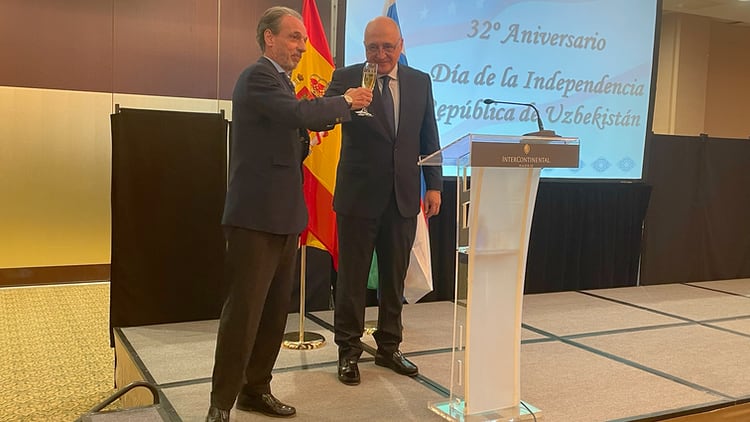The Diplomat
Spanish Cooperation allocated more than 19 million euros in 2022 to the elimination of trafficking, sexual exploitation and all forms of violence against women and girls, representing an increase of 16% over the previous year, as reported yesterday by the Spanish Agency for International Development Cooperation (AECID) on the occasion of the International Day against Sexual Exploitation and Trafficking of Women and Children, which is celebrated today.
Specifically, the Agency allocated almost 17.1 million euros to the achievement of target 5.2 of the Sustainable Development Goals (SDGs) of the UN 2030 Agenda (for the elimination of all forms of violence against all women and girls in the public and private spheres, including trafficking and sexual and other types of exploitation) and another 2.1 million to target 16.2 (to end abuse, exploitation, trafficking, torture and all forms of violence against children).
In 2022, it is estimated that around seven percent of these resources were linked to trafficking-specific actions. Much of this activity was deployed through two calls for public grants that globally, between 2018 and 2022, experienced a budget increase of 20%: the four-year call for development cooperation agreements and the annual public call for grants for the implementation of development cooperation projects, including Education for Development and Global Citizenship in Spain.
These grants have made it possible to subsidize in 2022, among other actions, the Creation of the National Portal on Crimes of Sexual Violence, Exploitation and Trafficking in Persons in Guatemala, a project that will continue until the end of 2024 aimed at improving the capacities of the Presidential Secretariat against Sexual Violence, Exploitation and Trafficking (SVET) through the creation of a portal that facilitates institutional management, as well as the registration and analysis of information.
In addition to these, AECID has other projects to strengthen the capacities of institutions involved in the prevention and detection of trafficking and the protection of victims in countries such as the Dominican Republic, Ecuador, Colombia, Egypt, Costa Rica, Paraguay and Bolivia, among others.
Paraguay
A significant example is Paraguay, the second nationality of origin of victims of sexual exploitation and trafficking in Spain, according to figures from the Ministry of Interior. Since 2018, more than 2,000 potential victims have been detected and eight people have been convicted. For that reason, Spanish Cooperation collaborated with the country’s authorities to create, in 2008, the Specialized Unit to Combat Human Trafficking and Sexual Exploitation of Children and Adolescents in the Public Prosecutor’s Office. AECID also supports this Unit by training prosecutors in the effective application of specialized investigative techniques to address both labor and sex trafficking, as well as establishing ongoing cooperation between the law enforcement agencies of both countries.
AECID is currently working to implement new programs to prevent and combat trafficking in various countries such as Ecuador, where it has just allocated one million euros to develop, together with the International Organization for Migration (IOM), a project for prevention, protection and governance in the response to human trafficking, with special emphasis on people in a situation of human mobility.
In Colombia, AECID, in collaboration with the United Nations Office on Drugs and Crime (UNODC), is formulating a new project to support the Ministry of the Interior to comprehensively address human trafficking in several of the country’s departments.
In Bolivia, the fight against trafficking and sexual exploitation is a common objective in the last two Country Partnership Frameworks (MAP, for its acronym in Spanish, a four-year instrument for bilateral geographic strategic planning of Spanish Cooperation). AECID has allocated to this country, since 2018, a total of seven million euros to the fight against trafficking.







